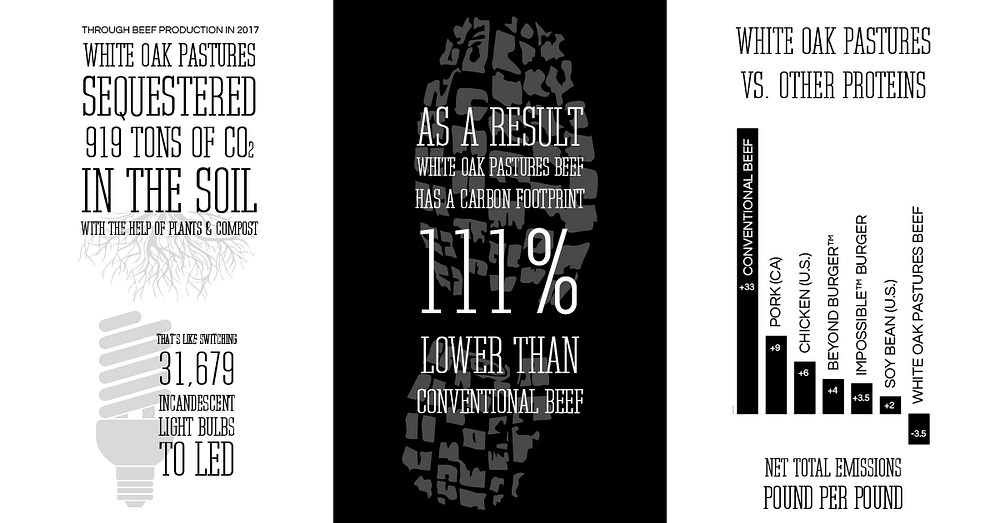Member-only story
Another Industry Attempt to Greenwash Beef
A review of the 2020 White Oak Pastures and General Mills study with commentary on the subject of “Regenerative Grazing”

Study: Ecosystem Impacts and Productive Capacity of a Multi-Species Pastured Livestock System | Rowntree et. al (2020)

January 2021
In June 2019, we reviewed a study by the environmental consultancy Quantis that was commissioned by White Oak Pastures (WOP). Quantis concluded that White Oak Pastures (WOP) was storing more carbon in its soil than the combined greenhouse gas (GHG) emissions of its pasture-raised cows during their lifetime. Our brief review was critical, partly due to the clear bias in a previous Nestle-funded Quantis study which concluded that allowing plastic bottles in national parks was ecologically benign. However, the main criticism was because of the large body of scientific literature refuting the claims of so-called “regenerative grazing”, an idea popularized by Allan Savory, and which also goes under names such as “holistic grazing” and “rotational grazing”. Subsequently, WOP began to make wide-scale claims about their carbon-negative beef:

In late 2020, a peer-reviewed life cycle assessment was published by Rowntree et. al (2020): Ecosystem Impacts and Productive Capacity of a Multi-Species Pastured Livestock System. In this study, mixed farming of cattle, pigs and poultry birds (mainly chickens) was compared to the conventional farming of each species. Please see below for a summary of the study, followed by our analysis and general comments:
Findings from the study:
- WOP grazing methods require 2.5 times more land than conventional meat production of each of the animal species.
- WOP claims to sequester 2.29 Mg of C/Ha/yr (carbon per hectare per…
